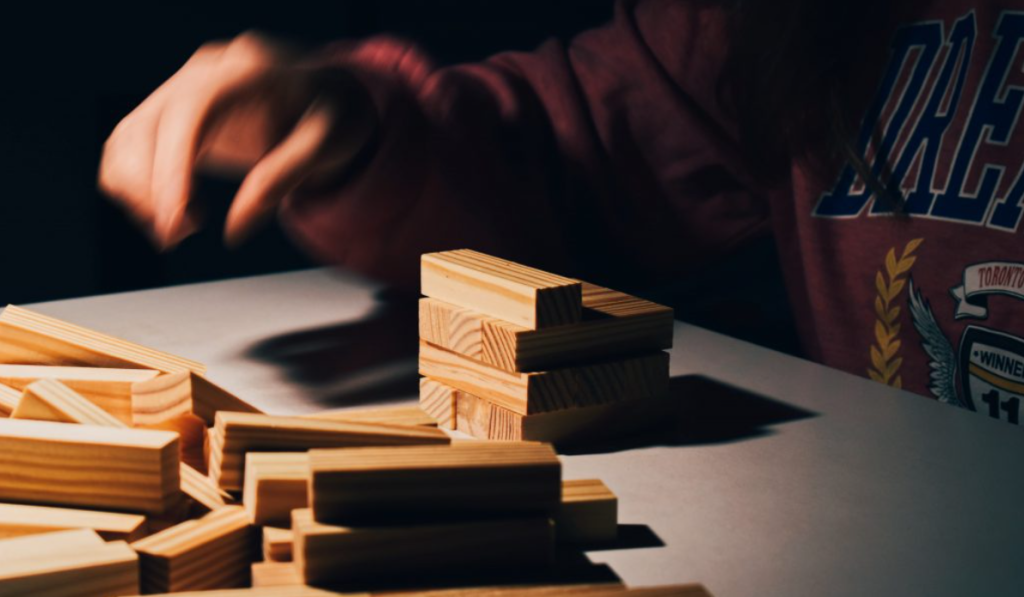How do you run a better game?
Your story is more immersive.
The Recipe
- Increasingly tense
- Mobilize the diversity of the five senses
- A risk worth taking.
Empowered to the Dice
In the long tradition of tabletop role-playing games, tense and risky outcomes are determined by dice. You say: “What do you do?” When the player responds, you say: “Give me a die!” Anything critical to the story requires a bit of luck, the random element, to succeed or fail. . Why? Because we play unwinnable games to see what happens, to see where the story goes. Knowing how a story ends makes it routine, predictable, and less exciting. The anticipation of the unknown is why we play games and why we run them. We want to know who won, who lost, and at what cost. We rolled the dice around to see how they fell.
As a GM, you can help players integrate into the character faster by mobilizing various basic senses. The five senses are how we perceive the world. The more senses you use, the better you can connect with your players on a human level. Language often sends unexpected mixed messages. Help players better understand their imaginary environments by speaking their language, the language of how they perceive the world.
What better way to do that than with better tools?

The Building Blocks of RPG
Are we asking too much for dice? I mean, look at the rise of Jenga in RPGs. The contribution of “Fear” is its simplicity. It replaces the dice as the random element of success with a tactile tool, while also adding visual tension. Like a clock in the center of the table, it measures player expectations in a way that the GM can predict. It’s evocative! If you’ve ever considered holding your breath while pulling blocks from a teetering block tower, then you know what I mean. Each pull of the string feels a bit like rolling 20 times naturally – but over and over again! Can anyone tell me why we’re still rolling the dice?
Block Tower RPGs
- Fear – Winner of the 2006 ENnie Innovation Award, nominated for Best Game and Best Rules.
- Silent Memories – Winner of ENnie’s Best Free Game 2013
- Star Crossover – 2019 Diana Jones Award Winner
What if you wanted to take the numbers out of an RPG and let players focus on their characters, story, and rising tension? You could argue that Block Tower RPG is easier to play and easier to teach, opening up the game even further. Hobby, attract more players. That’s the story behind the concept of Dread, which you may know as the Jenga RPG. Dread popularized the use of Jenga towers instead of dice. Moreover, it was this tool, not the GM, that checked out all my points of interest at once.
Provide a More Immersive Experience
- Increasingly tense
- Mobilize the diversity of the five senses
- A risk worth taking.
- No math
Designer’s Block
I’m writing this as a game designer who has spent the past few years working on using Jenga towers in RPGs. Cards are increasingly becoming a mechanism in tabletop RPGs. Block Tower RPG has also continued to develop with the expansion of RPG users and the integration of different types of table games. As a GM, maybe it’s time to revisit the tools we use on the desktop, or at least ask ourselves: “Why not use Block Tower?”

There’s an ending with a tower collapsing and a bit of lazy desire to leave it in ruins. What better way to express the chaos of death or forbidden love? The game mechanics tempt you with the forbidden fruit of success, knowing that each temptation inevitably brings you closer to the end. Every collapse of a tower is dramatic, but let’s not kid ourselves, putting the Jenga tower back together again is a chore. In a game with the potential for multiple crashes, each rebuild is a break in tension, and possibly in narrative. This is great if you match the inevitable collapse with a story beat (a huge sacrifice, a character death, a tragedy, the end of a session) that warrants reflection or pause. Otherwise, every crash is an increasingly tiresome interruption in the action. For this reason, you may find that using a block tower is better than playing for long periods of time.
Another interesting benefit of the Block Tower RPG is the advancement in character creation. Just as the block tower reduces the need for math in traditional RPG gameplay, it also reduces the skill required for each player to create a character. We can ask questions about who a character is and assign a value based on a description (rather than a summary of their attribute scores). This further lowers the barrier to entry for learning how to play tabletop RPGs.
Since 2005, Dread has inspired many designers (myself included) to delve deeper into the design space of cube towers. I’m reading an article right now by the great Ryan Burt of the Character Creation Podcast! I’ve read stories once about GMs using block towers for dream sequences in Dungeons & Dragons, or as An alternative rules system for the massive Halloween gaming event.
Has it inspired you?
How has Dread inspired your games?
